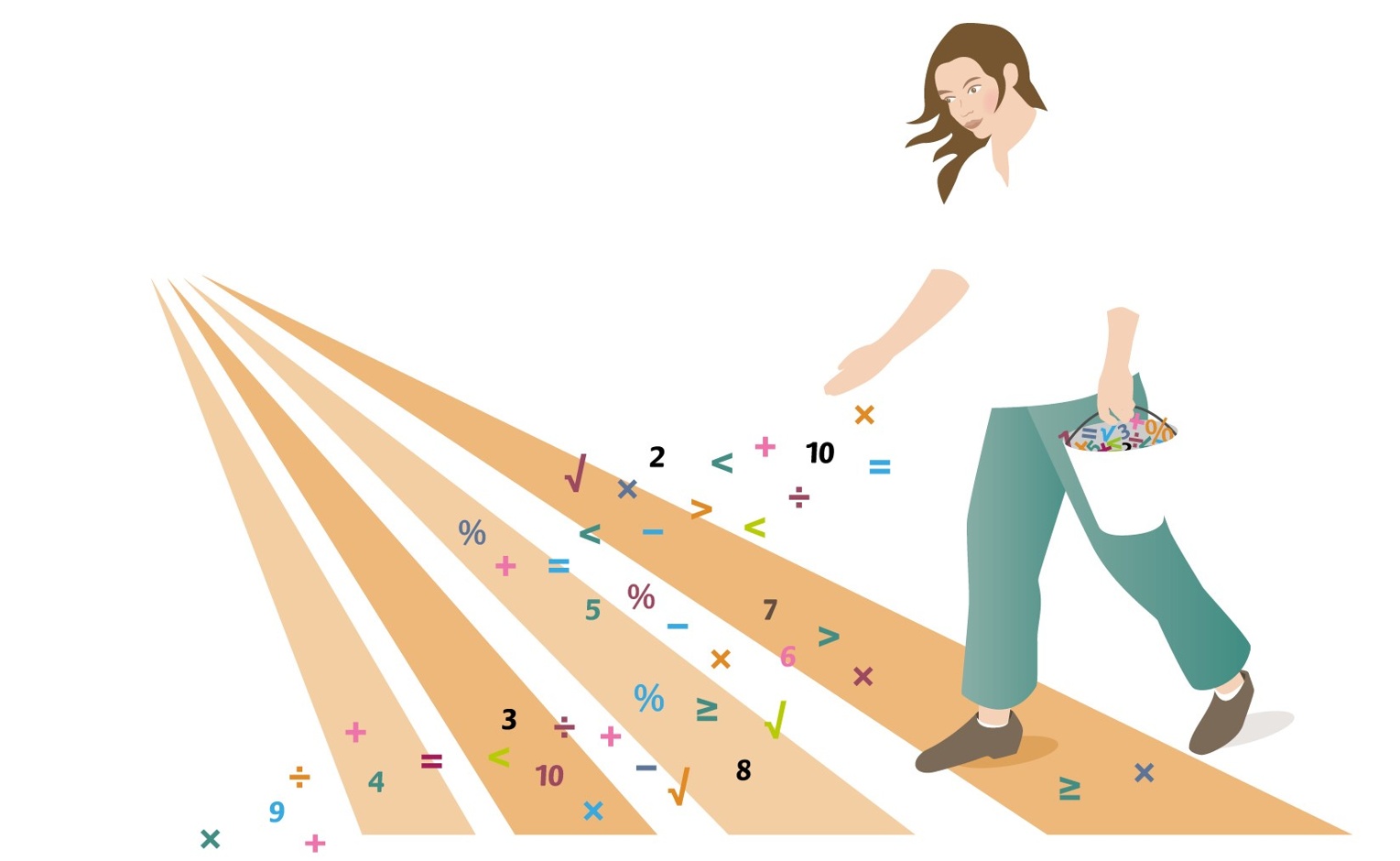Dr. Svea Hallemann
Knowledge Transfer
see profile
+49-(0)30-2093-47984
Svea Hallemann, Annett Kreuziger, Hans Anand Pant, Susanne Prediger & Christoph Selter
Not even half of children and young people in Germany reach the required standards in mathematics. A ten-year program of the Standing Conference of the Ministers of Education and Cultural Affairs (KMK) is now set to sustainably improve the educational quality of mathematics lessons in primary and secondary schools. The program is expected to reach up to 10,000 schools through a coherent, subject-related, research-based and practice-oriented training initiative for the further development of mathematics teaching. The IPN coordinates the program Developing Teaching and Training Quality in Mathematics (QuaMath). The program is presented here.

The quality of teaching determines the educational opportunities of children and students. In the subject of mathematics, all learners should be encouraged to think actively and develop an understanding of mathematics through discussions and working on tasks. Therefore, it is important to further develop teaching in a targeted manner - this is where the ten-year QuaMath program, which is funded by the KMK and was officially launched in January 2023, comes in. The German Centre for Teacher Education in Mathematics, which is coordinated by the IPN Department of Knowledge Transfer, can draw on more than twelve years of experience in development and professionalization research.
The QuaMath program will be implemented in two phases: From 2023 to 2028, the necessary structures will be established and 400 professional development (PD) facilitators will receive profound qualifications to carry out further training and support the schools. The PD facilitators have a key role in the program. After completing their own qualification, they are responsible for the teacher professional development in schools. They facilitate school networks and support school teams in their teaching improvement process. After basic qualification of the PD facilitators, participating schools will begin professional development on the basic modules in school networks under the leadership of facilitators in tandems. Six school network meetings will take place each year. During the second year, deep specific and content related modules are offered. Beginning the third year, teachers can opt to continue their professional development using digital modules according to their interests. Formative evaluations and research will serve to adapt the materials and thus support iterative quality development.
Existing structures will be optimized in the second funding phase of the program from 2028 to 2033 and the training and qualification modules will be further developed, based on the research findings.
Although teaching quality is characterized by a large number of quality features, it has proven helpful in further education projects to work with a few quality features that are then used consistently for all teaching decisions in typical teaching situations. The following five QuaMath principles are therefore used as the basis for all 27 modules:
–Cognitive demand: Initiate active learning processes
–Conceptual focus: Build a basis for concepts, strategies, and procedures
–Longitudinal coherence: Prepare for sustainable learning
–Student focus and adaptivity: Work with students’ perspectives
–Enhanced communication: Talk about mathematical ideas
QuaMath addresses both the teaching level and the levels of further training for teachers and PD facilitators. It offers a wide range of services for all groups involved at different levels (teachers, facilitators and administrators):
- Intensive professionalization offers (personal strategy)
- Support through continuing education
- Materials (material strategy)
- Network structures for systemic networking and integration (systemic strategy).
Development research at training and qualification level and impact research at learner and teacher level will accompany the entire program. Different focal points are set depending on the basic, in-depth or content modules and target groups. The aim is to derive research-based, empirically verified explanatory and practical knowledge to support the program:
- Status and conditions of the changeability of the training content
- Teaching competence of facilitators and teachers
- Conditions for success and effects of selected design and content elements in qualifications
- Status and conditions of changeability of the teaching skills of mathematics teachers
- Success conditions and effects of selected design and content elements in training/self-study modules
- Success conditions and effects of support measures
- Transfer measures within the school
- Effects of the bundles of measures at several levels on teachers' skills and teaching practices
- Effects of the bundles of measures at several levels on the development of learner skills
More than 60 state appointed project managers enable and support the QuaMath program within their regional administrative contexts. They collaborate with the facilitators and school networks according to the given state structures. Due to their complexity, joint state programs in Germany such as QuaMath require intense investment at the management level. It is necessary for the state project leaders and state coordinators to work closely with the project managers at the research institutions involved.
Dr. Svea Hallemann is a research scientist at the IPN in the Department of Knowledge Transfer. She is a sociologist and deputy overall coordinator of the QuaMath program.
Prof. Dr. Hans Anand Pant is Director of the Department of Knowledge Transfer at the IPN. The psychologist's research focuses on issues such as data-supported school and teaching development and the validity of competence measurement in the school and higher education sector.
Annett Kreuziger is the overall coordinator for the QuaMath program and also works at the IPN in the Department of Knowledge Transfer. She has long been involved in teacher professionalization as a teacher trainer and in management.
Prof. Dr. Susanne Prediger is Deputy Director of the Department of Subject-Specific Knowledge Transfer at the IPN. The mathematics education specialist is, inter alia, Chair of the DZLM.